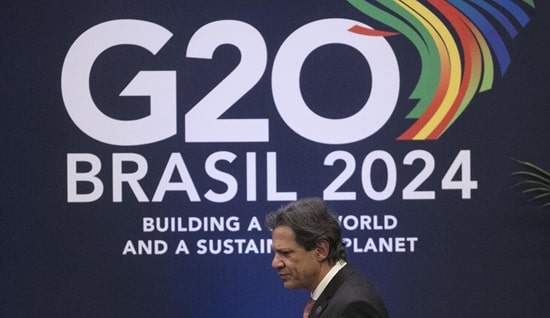At a recent meeting in Rio de Janeiro, G20 finance ministers reached a significant consensus to move toward effectively taxing the super-rich. This initiative, championed by Brazil, seeks to address global inequality and generate substantial revenue for public services and climate action. The ministers’ declaration emphasized the need for cooperative engagement to ensure ultra-high-net-worth individuals are adequately taxed, while respecting national tax sovereignty.
Brazil’s Bold Proposal
Brazil has placed a 2% minimum tax on billionaires as a central focus of its G20 presidency. This proposal aims to raise between $200 billion to $250 billion annually from around 3,000 individuals worldwide. Brazilian Finance Minister Fernando Haddad highlighted this step as a significant advance, exceeding initial expectations. He noted the broad support from several G20 nations, despite some resistance from countries like the United States, which expressed concerns about the feasibility of a global tax agreement.

Economic and Social Justifications
The economic rationale behind this tax is supported by staggering statistics. The richest 1% have accumulated $42 trillion in new wealth over the past decade, vastly outpacing the wealth growth of the bottom 50% of the world’s population. Currently, billionaires pay an average of just 0.3% of their wealth in taxes. Implementing a 2% tax could significantly increase public revenue, funding essential services like education and healthcare, and addressing urgent issues such as climate change.
Challenges of Global Coordination
Implementing such a tax presents several challenges, primarily the risk of capital flight to tax havens. Economist Gabriel Zucman, who prepared the supporting report for Brazil’s proposal, stressed the importance of international cooperation to prevent tax avoidance. A coordinated approach would mitigate the risk of individuals moving their wealth to countries with lower tax rates, ensuring the effectiveness of the tax.
Political and Environmental Implications
The proposal also has significant political and environmental implications. NGOs like Climate Action Network International argue that taxing the super-rich is essential for climate justice, as the wealthiest individuals contribute disproportionately to carbon emissions. They advocate for using the tax revenue to fund climate mitigation and adaptation efforts, framing the tax as both an economic necessity and an ethical imperative.
Broader Context of Global Inequality
This initiative is part of a broader effort by Brazil to tackle global inequality. President Luiz Inácio Lula da Silva has prioritized combating poverty and hunger during Brazil’s G20 presidency. He has called for a global alliance to address these issues, advocating for changes in global governance to support a more sustainable and equitable economic system.
The consensus reached at the G20 finance ministers meeting marks a critical step towards addressing the disproportionate accumulation of wealth among the super-rich. While the path to a globally coordinated tax system is fraught with challenges, the potential benefits for economic equity and climate action are substantial. The upcoming G20 summit in November will be a crucial moment for advancing this agenda further.

Meet Suhas Harshe, a financial advisor committed to assisting people and businesses in confidently understanding and managing the complexities of the financial world. Suhas has shared his knowledge on various topics like business, investment strategies, optimizing taxes, and promoting financial well-being through articles in InvestmentDose.com


